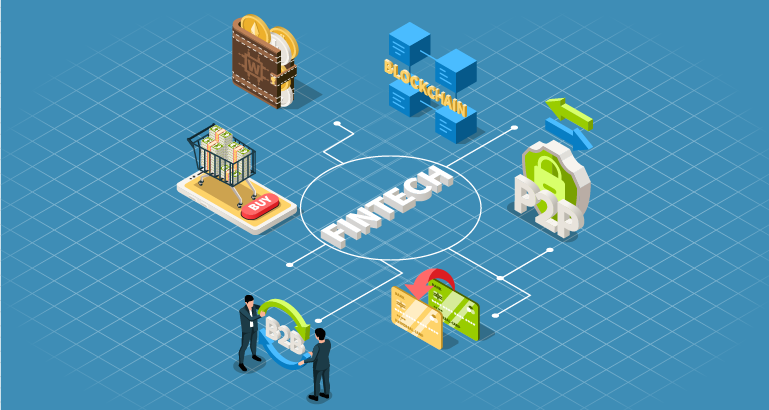The Soaring Growth of Fintech: Recent Developments and Key Aspects
Introduction
In the ever-evolving landscape of the financial sector, fintech has emerged as a disruptive force that is reshaping the way we manage, invest, and transact our money. Fintech, short for financial technology, encompasses a wide range of innovative digital solutions that are revolutionizing traditional financial services. Over recent times, the fintech industry has witnessed extraordinary growth, driven by various developments and advancements. In this blog, we will explore the recent developments in the fintech sector, examining the key aspects that have fueled its remarkable expansion.
The Proliferation of Digital Payments
One of the most significant developments in the fintech industry has been the proliferation of digital payments. As a result of the COVID-19 pandemic, there has been an increased demand for contactless payment methods, which has accelerated the adoption of digital wallets, mobile banking apps, and various other payment technologies. Fintech companies like PayPal, Square, and Stripe have played a crucial role in facilitating this transition, making it easier for consumers and businesses to send and receive money electronically.
Cryptocurrency and Blockchain
The rise of cryptocurrencies and blockchain technology has been a game-changer for the fintech industry. Bitcoin, Ethereum, and numerous other digital currencies have gained mainstream recognition and have attracted both individual and institutional investors. The integration of cryptocurrencies into traditional financial systems, along with the underlying blockchain technology, has the potential to revolutionize cross-border transactions, remittances, and asset management.
Neobanks and Digital-Only Banking
Neobanks, or digital-only banks, have gained immense popularity in recent years. These banks operate entirely online and offer a range of banking services, including savings accounts, checking accounts, and lending, without the need for physical branches. Fintech startups like Chime, Revolut, and N26 have been at the forefront of this digital banking revolution, providing customers with convenience, lower fees, and user-friendly mobile apps.
Fintech for Small Businesses
Fintech solutions have also made a significant impact on small businesses. Startups like Square and QuickBooks have developed innovative tools for small business owners to manage their finances, process payments, and access funding more efficiently. This has helped to level the playing field for small businesses, enabling them to compete with larger corporations on a more equal footing.
Regulatory Developments
Regulatory changes have played a vital role in shaping the fintech landscape. Governments and regulatory bodies around the world have recognized the need to adapt to the rapid pace of innovation in the industry. Initiatives like open banking regulations, PSD2 in Europe, and the development of sandboxes for fintech experimentation have paved the way for increased competition, consumer protection, and innovation in the sector.
The Rise of Robo-Advisors
Robo-advisors have gained traction as a cost-effective and efficient way to manage investments. These automated investment platforms use algorithms and data analysis to create diversified portfolios and provide investment advice. Companies like Wealthfront, Betterment, and Robinhood have made investing accessible to a broader demographic, breaking down the barriers that once deterred many from entering the world of investing.
Fintech and Financial Inclusion
Fintech has also made strides in promoting financial inclusion. Mobile banking and digital wallets have provided underserved populations with access to banking services, enabling them to participate in the formal financial system. This has the potential to reduce poverty and empower individuals and communities that were previously excluded from the traditional banking sector.
Cybersecurity and Data Privacy
As the fintech industry grows, so do concerns about cybersecurity and data privacy. The collection and storage of sensitive financial information make fintech companies attractive targets for cybercriminals. Recent developments in this area include the implementation of enhanced security measures, biometric authentication, and increased focus on customer education to protect against financial fraud and data breaches.
Conclusion
The fintech industry has experienced remarkable growth in recent times, driven by the proliferation of digital payments, the rise of cryptocurrencies and blockchain technology, the emergence of neobanks, regulatory developments, the adoption of robo-advisors, efforts to promote financial inclusion, and the ongoing commitment to cybersecurity and data privacy. As the industry continues to evolve and innovate, it promises to bring even more profound changes to the way we manage our finances and access financial services. Get in touch with Nu10’s team of fintech experts who act as a driving force behind the client’s dream fintech project.
About Author
Gururaj Potnis
Gururaj Potnis is an accomplished entrepreneur with 18 years of experience across ventures such as Erasmic Consulting, Manthan, and Idea Bubbles. An alumnus of IIM Calcutta and IIT Delhi, Gururaj has a proven track record of steering organizations through growth and transformation. His leadership philosophy centers on fostering innovation, nurturing talent, and delivering scalable, future-ready solutions that resonate across industries.








